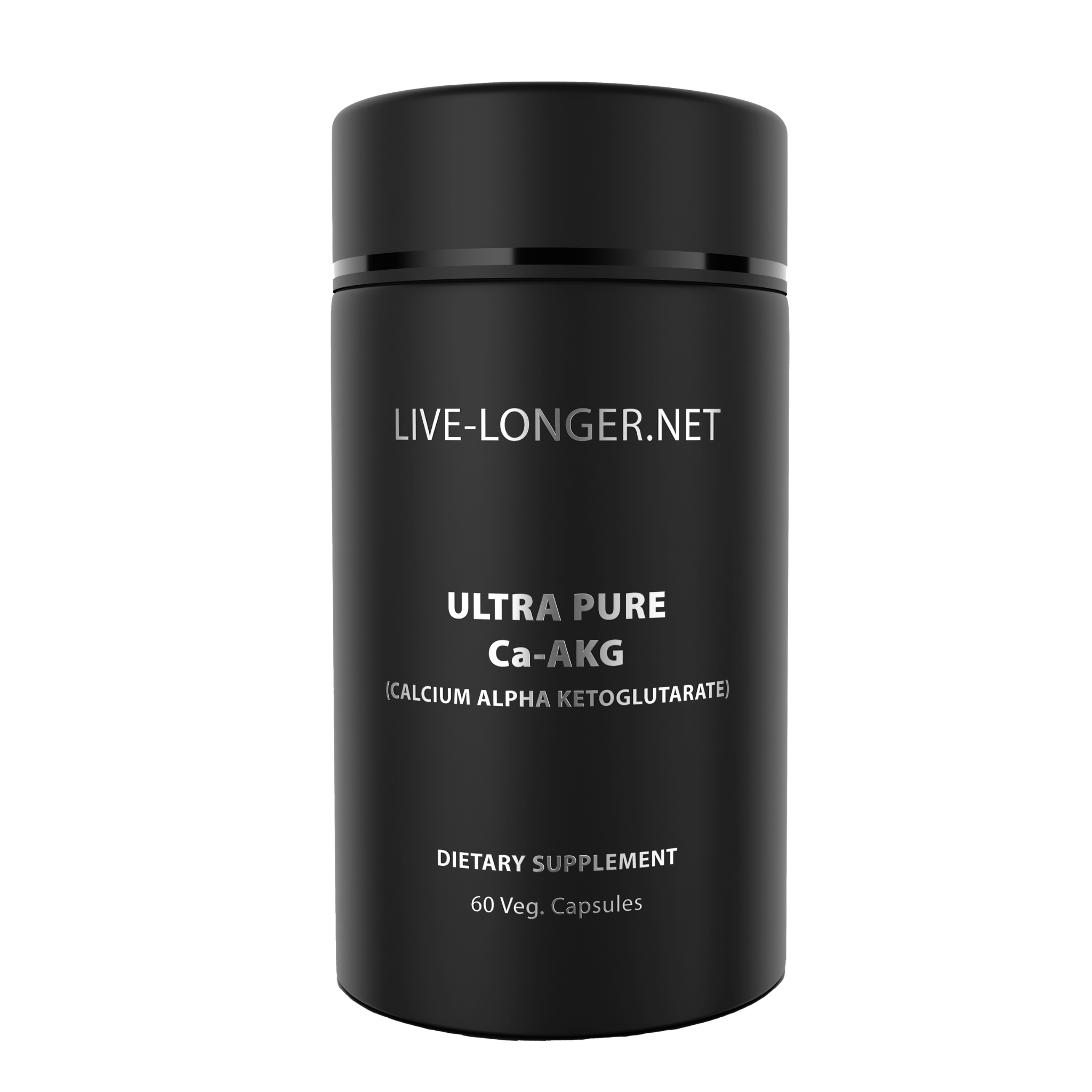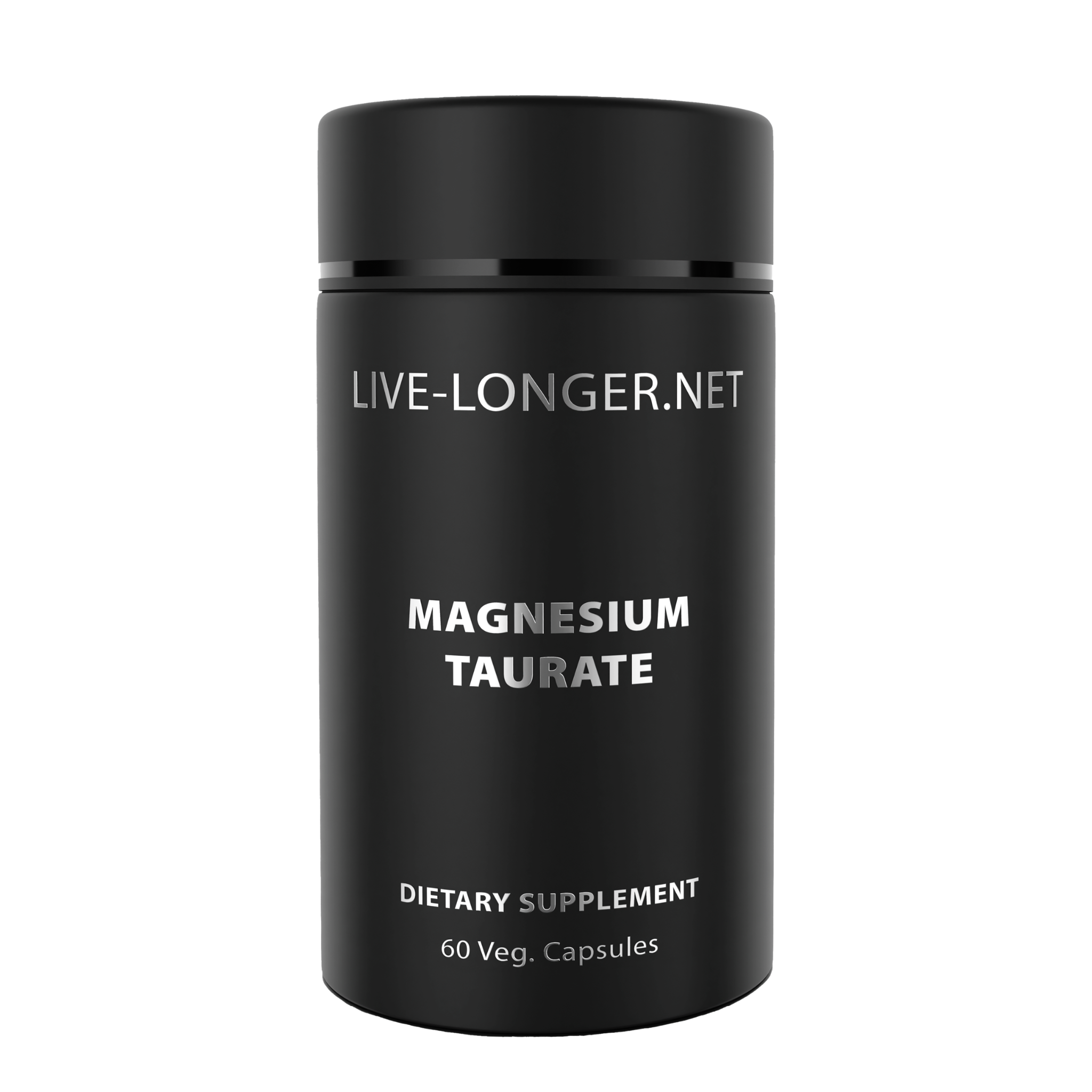Scientists are constantly finding new ways to help us stay healthy and live longer. One thing they're excited about is spermidine, a natural compound that helps us age better. Spermidine is found in certain foods and plays a big role in keeping our cells healthy. A literature review assessed the benefits of spermidine and found that it helps keep our minds and bodies young and keeps diseases at bay (1).
But is it just hype? Or is there real science behind it? In this guide, we explore everything about spermidine. So, why the wait? Let's get into it.
A Closer Look at Spermidine and Its Chemistry
Spermidine is a naturally occurring class of unique compounds called polyamine. It is known as a polyamine due to its multiple amine groups, which play a crucial role in regulating cellular function. Its chemical structure consists of a flexible carbon chain with three amino groups, giving it a positive charge at physiological pH levels. This unique configuration enables spermidine to interact with various cellular components, influencing processes vital for health and longevity (2).
Spermidine exerts profound effects on cellular function, primarily through its involvement in two fundamental processes (3):
Autophagy: Spermidine promotes autophagy, a cellular recycling mechanism crucial for eliminating damaged structural components and proteins. By facilitating autophagic flux, spermidine contributes to cellular rejuvenation and maintenance.
Apoptosis: Spermidine also regulates apoptosis, or programmed cell death, ensuring the orderly removal of unwanted or dysfunctional cells. This process is essential for tissue maintenance and the prevention of pathological conditions.
Natural Sources of Spermidine
While the body can synthesize spermidine, dietary intake remains a significant source of this essential compound. Common dietary sources rich in spermidine include:
Legumes: Soybeans, lentils, and chickpeas
Whole grains: Wheat germ, oats, and brown rice
Fruits: Oranges, grapefruit, and bananas
Vegetables: Spinach, broccoli, and peas
Dairy products: Cheese and yogurt
Therefore, adding these spermidine-rich foods to your diet provides a natural means of obtaining this essential polyamine. But you should know that diet is not always enough to meet your body's requirements. That's why you will need Ultra Pure Spermidine supplements for maximum benefits.
Why Supplements Are Better?
While consuming spermidine-rich foods can contribute to overall intake, there are several reasons why supplements may offer superior advantages. For example, the concentration of spermidine in dietary sources can vary significantly. It's challenging to ascertain precise spermidine levels in foods due to factors like variations in cultivation, processing methods, and storage conditions. In contrast, supplements provide a standardized dosage, ensuring consistency and reliability in intake. Other reasons why you should prefer supplements over food sources are,
High Spermidine Content
Modern dietary habits and food processing techniques may lead to decreased spermidine content in foods. Factors such as overcooking, refining, and prolonged storage can degrade spermidine levels. By taking supplements, individuals can bypass these potential losses and ensure adequate intake.
Increased Bioavailability
The bioavailability of spermidine from supplements may be higher than that from food sources. Supplements are formulated to optimize absorption, often utilizing advanced delivery systems to enhance bioavailability. This means that the body can more efficiently utilize spermidine when taken in supplement form, leading to potentially greater benefits.
Convenience and Accessibility
Obtaining sufficient spermidine solely from dietary sources may require careful meal planning and regular consumption of specific foods. In contrast, supplements provide a convenient alternative, allowing individuals to easily incorporate spermidine into their daily routine without the need for extensive dietary modifications.
Benefits of Spermidine Supplements
Improve Cognitive Performance
Spermidine has been shown to possess neuroprotective properties, safeguarding neurons against oxidative stress and inflammation. Oxidative stress and inflammation are common contributors to cognitive decline and neurodegenerative diseases such as Alzheimer's and Parkinson's. Spermidine's ability to counteract these harmful processes may help preserve cognitive function and protect against age-related cognitive decline (4).
Moreover, spermidine supplementation has been linked to increased synaptic plasticity, which refers to the brain's ability to adapt and form new connections between neurons. Synaptic plasticity is essential for learning and memory processes. Studies suggest that spermidine may enhance synaptic plasticity by promoting the formation of new synapses and strengthening existing ones, thereby improving cognitive flexibility, learning, and memory retention (5).
Additionally, spermidine may exert its cognitive-enhancing effects by modulating neurotransmitter systems. Neurotransmitters are chemical messengers that facilitate communication between neurons. Spermidine has been shown to influence the release and activity of neurotransmitters such as dopamine and glutamate, which play key roles in cognitive processes, including attention, motivation, and memory formation (6).
Promote Heart Health
Spermidine promotes heart health by its ability to induce autophagy. Autophagy is crucial for maintaining cellular health and function, and its dysregulation has been linked to various cardiovascular diseases, including atherosclerosis and heart failure. Spermidine has been shown to enhance autophagy in cardiac cells, which helps in removing dysfunctional proteins, thereby reducing the risk of cardiac dysfunction and improving overall heart health (7).
It also possesses anti-inflammatory properties that contribute to its cardioprotective effects. Chronic inflammation is a key driver of cardiovascular diseases, and spermidine has been shown to suppress the production of proinflammatory cytokines and modulate immune responses. By reducing inflammation, spermidine helps prevent the development and progression of atherosclerosis, myocardial infarction, and other cardiovascular conditions (8).
Furthermore, spermidine exhibits antioxidant activity, which is vital for protecting the heart from oxidative stress-induced damage. Oxidative stress occurs when there is an imbalance between the production of reactive oxygen species (ROS) and the body's antioxidant defenses. Excessive ROS can damage cellular structures and contribute to the pathogenesis of cardiovascular diseases. Spermidine acts as a scavenger of ROS, neutralizing their harmful effects and preserving the integrity of cardiac cells (9).
Boost Immune Function
Spermidine exhibits anti-inflammatory properties, which play a vital role in modulating immune responses. Chronic inflammation can impair immune function and contribute to various diseases. Spermidine helps regulate inflammation by modulating signaling pathways and reducing the production of proinflammatory molecules (10).
Moreover, spermidine has been found to support the function of immune cells, including T cells and natural killer (NK) cells. These cells play essential roles in identifying and eliminating pathogens and abnormal cells. Spermidine supplementation has been shown to enhance the proliferation and activity of these immune cells, thereby strengthening the body's ability to combat infections (11).
Another way spermidine may boost immune function is by promoting gut health. The gut microbiota plays a crucial role in regulating immune responses, and disruptions in gut flora can compromise immune function. Spermidine has been shown to support the growth of beneficial gut bacteria while inhibiting the growth of harmful microbes. By promoting a healthy gut microbiome, spermidine indirectly supports immune function (12).
Anti Aging Properties
Now, we know exactly how spermidine works. So, it's time to summarize those benefits and see how it helps to achieve anti-aging benefits.
One key mechanism involves autophagy, which is the body's way of cleaning out damaged cells and regenerating new ones. Spermidine seems to enhance this process, helping cells to efficiently remove harmful substances. This helps to promote healthy aging of the cells.
Additionally, antioxidant properties of spermidine can neutralize harmful molecules called free radicals that contribute to aging and disease. By reducing oxidative stress, spermidine may help protect cells from damage and slow down the aging process.
A Quick Recap
The world is changing, and we have found incredible ways to keep our bodies healthy and young for the years to come. One such way is to add spermidine supplements to your diet. Through its profound effects on cellular health, anti-aging properties, cognitive enhancement, cardiovascular support, and immune system fortification, spermidine supplementation represents a transformative tool in pursuing optimal well-being.
However, in a competitive market like today's, finding a supplement produced with robust standard protocols is the most difficult job. That's why you should remain proactive about the quality of the supplements and only choose high-quality products like Ultra Pure Spermidine for maximum results.
References
- Madeo F, Carmona-Gutierrez D, Kepp O, Kroemer G. Spermidine delays aging in humans. Aging (Albany NY). 2018;10(8):2209-11.
- Prasher P, Sharma M, Singh SK, Gulati M, Chellappan DK, Rajput R, et al. Spermidine as a promising anticancer agent: Recent advances and newer insights on its molecular mechanisms. Front Chem. 2023;11:1164477.
- Chen Y, Zhuang H, Chen X, Shi Z, Wang X. Spermidine‑induced growth inhibition and apoptosis via autophagic activation in cervical cancer. Oncol Rep. 2018;39(6):2845-54.
- Ni YQ, Liu YS. New Insights into the Roles and Mechanisms of Spermidine in Aging and Age-Related Diseases. Aging Dis. 2021;12(8):1948-63.
- Maglione M, Kochlamazashvili G, Eisenberg T, Rácz B, Michael E, Toppe D, et al. Spermidine protects from age-related synaptic alterations at hippocampal mossy fiber-CA3 synapses. Sci Rep. 2019;9(1):19616.
- Yadav M, Parle M, Jindal DK, Sharma N. Potential effect of spermidine on GABA, dopamine, acetylcholinesterase, oxidative stress and proinflammatory cytokines to diminish ketamine-induced psychotic symptoms in rats. Biomedicine & Pharmacotherapy. 2018;98:207-13.
- Yan J, Yan JY, Wang YX, Ling YN, Song XD, Wang SY, et al. Spermidine-enhanced autophagic flux improves cardiac dysfunction following myocardial infarction by targeting the AMPK/mTOR signalling pathway. Br J Pharmacol. 2019;176(17):3126-42.
- Liu S, Huang T, Liu R, Cai H, Pan B, Liao M, et al. Spermidine Suppresses Development of Experimental Abdominal Aortic Aneurysms. J Am Heart Assoc. 2020;9(8):e014757.
- Jiang D, Guo Y, Niu C, Long S, Jiang Y, Wang Z, et al. Exploration of the Antioxidant Effect of Spermidine on the Ovary and Screening and Identification of Differentially Expressed Proteins. Int J Mol Sci. 2023;24(6).
- Jeong JW, Cha HJ, Han MH, Hwang SJ, Lee DS, Yoo JS, et al. Spermidine Protects against Oxidative Stress in Inflammation Models Using Macrophages and Zebrafish. Biomol Ther (Seoul). 2018;26(2):146-56.
- Chamoto K, Zhang B, Tajima M, Honjo T, Fagarasan S. Spermidine – an old molecule with a new age-defying immune function. Trends in Cell Biology. 2023.
- Hofer SJ, Simon AK, Bergmann M, Eisenberg T, Kroemer G, Madeo F. Mechanisms of spermidine-induced autophagy and geroprotection. Nature Aging. 2022;2(12):1112-29.









